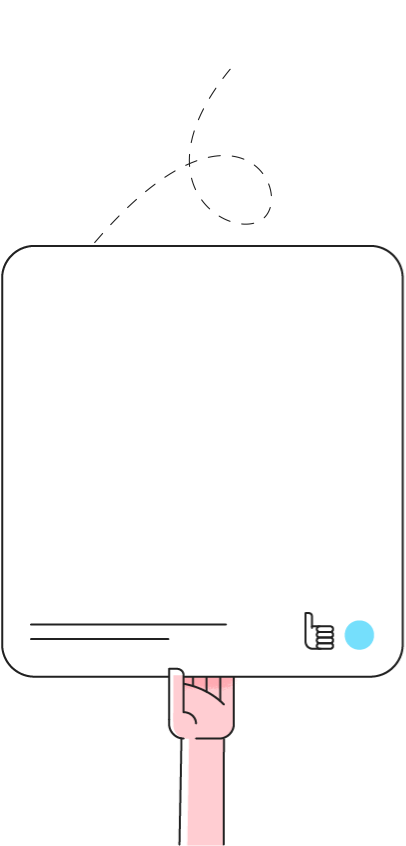Table of Contents
So you want to start a podcast? I hear ya! Podcasts are all the rage these days and over 100 million people listen to at least one podcast each week. The real question is where do you start? Lucky for you, we’ve put together a complete guide to starting your own podcast. Check it out!
1. Find your topic
You want to start a podcast but what do you want to say? Podcasts are a limited medium platform meaning you really only have one tool, your voice! What you use it for matters. Most podcasts are either focused around a central theme or a specific person. My Favorite Murder, a popular true-crime podcast, only discusses true-crime related things. However, MOOD with Lauren Elizabeth focuses on all life aspects of its host, popular YouTube personality, Lauren Elizabeth. Before beginning your podcast, you need to think about whether or not you want to focus on a specific topic, or if you want to keep it broad and general. A good tip is to make sure that if you pick a specific topic, it is one that can be talked about for several episodes. Stupid Genius, a podcast hosted by YouTuber Emma Chamberlain, originally aimed to explore and answer life’s weirdest questions such as “why do we hiccup?” After about 40 episodes, Chamberlain realized this format was not sustainable for her and she ended up transitioning her podcast to a broader format, fittingly called “Anything Goes.”
https://www.instagram.com/p/B-Z9hUnjlPk/
While transitions like this are certainly okay to make, start by truthfully asking yourself if your podcast idea is:
- Sustainable (for as many episodes as you want to make)
- Interesting to a large audience
- Flexible and able to evolve
2. Set up a structure
Once you determine the topic of your podcast, you need to set up some sort of structure. This can be as hard or flexible as you want, but some sort of guide can be useful so you don’t spend an entire episode rambling. A podcast with a great structure is The Morning Toast. Every episode begins with the “fast five stories you need to know before taking a bite out of your morning toast.” Once all the stories are discussed, the hosts recap any Bravo shows that aired since their last episode. Finally, on Wednesdays, the hosts have an advice section where they read listener-submitted issues and offer advice. This is a great structure because it is easy to follow and flexible if it needs to be. How I Built This is a podcast hosted by NPR that features a different entrepreneur each week. While the guests and stories change, each episode is always moderated by Guy Raz and follows a similar structure. Finally, We Bought a House is a newer podcast that follows a much looser structure. Claudia Sulewski and her boyfriend Finneas O’Connell chat very conversationally, but always relate topics back to their relationship.
https://www.instagram.com/p/B-crXosAyo0/
3. Get the Right Equipment
Now that you have a topic and a structure, you need equipment! When it comes to podcasting, the best investment you can make is in your equipment. Obviously, your microphone is going to be your best friend and should be your first priority. After all, podcasts are nothing without audio. However, that doesn’t mean you can’t have a great podcast with a recording device as simple as your iPhone! As long as you are able to record in a quiet room with little echo, you should be good to go.
https://www.instagram.com/p/B35rNOeBRwc/
To compete with other mediums, some podcasts choose to include a visual element such as a video or livestream. While this is not necessary, it can help your audience feel more connected to you because they will be able to actually see who is talking to them. This could also introduce you to new audiences on platforms such as YouTube.
4. Build a following
Before launching your podcast cold-turkey, you should probably build somewhat of a following first. Whether it be on Instagram, YouTube, or through your company, already having an audience will certainly help your podcast start off strong. You can use your existing pages to promote that you have a podcast in the works and get on people’s radar before you officially launch. The more suspense you can build around your launch, the better!
https://www.instagram.com/p/BvKqo7UHcPw/
5. Record your first episode
The time has finally come to record your first episode! It can feel awkward at first, especially if you are not used to being recorded or hearing your own voice, so a few practice runs may be beneficial. Often times podcast hosts joke that they recorded their first episode several times before finally landing on the actual episode. Just remember these key tips:
- Breathe. The more you get used to recording, the less nervous you will be.
- Slow down. People tend to talk fast when they are nervous so try not to.
- Speak up. Even if you have state-of-the-art equipment, work on speaking with confidence.
6. Cross-market your podcast
Now that you have your podcast up and running, you need some listeners! There are several ways to market your podcast but here are some of our favorites.
- Create an Instagram for your podcast
- Be a guest on other podcasts
- Encourage your listeners to write positive reviews
- Create a Facebook group for your listeners
These are just a few ways, but there are tons that may work better for you. Only you know your audience best!
7. Don’t give up!
Finally, don’t give up! Starting a podcast can be hard work and it may take a few episodes, or even months, for your show to gain traction. Try not to get discouraged and hang in there. The podcast world is competitive but with these tips, you’ll be ready to take it on in no time.
Have a question about NeoReach? Contact us.
Are you an influencer? Reach us here.
Have a question about pricing? Read this.























